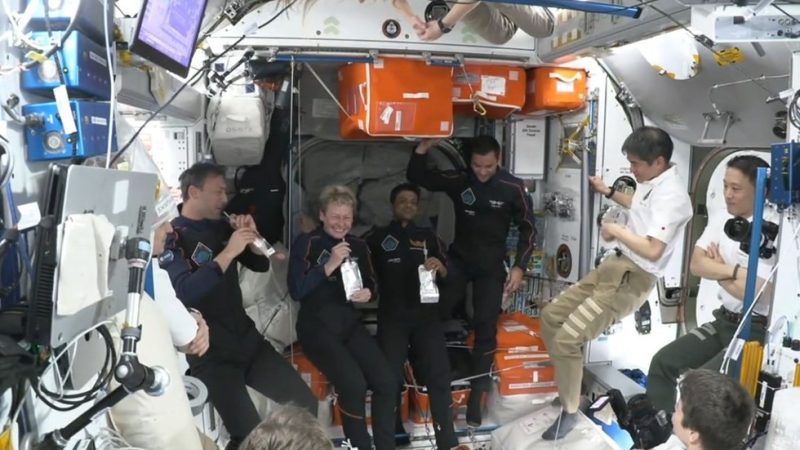
India is celebrating a momentous occasion in its space exploration journey. Group Captain Shubhanshu Shukla, an officer in the Indian Air Force, has become only the second Indian citizen to journey into space and the first since 1984. His arrival at the International Space Station (ISS) aboard SpaceX’s Axiom Mission 4 marks a significant milestone for the nation’s ambitious space program.
Shukla’s journey began on Wednesday with the launch of the SpaceX Dragon spacecraft from NASA’s Kennedy Space Center in Cape Canaveral, Florida. After overcoming nearly a month of delays, the successful docking at the ISS was announced on Thursday by SpaceX. The mission represents a culmination of years of rigorous training for Shukla, who was selected as the prime astronaut for India’s first human spaceflight mission to the ISS. His extensive training program, which included time at the Yuri Gagarin Cosmonaut Training Center near Moscow, prepared him for the unique challenges of space travel.
Upon reaching the ISS, Shukla greeted the world with a traditional Indian ‘namaskar’, a gesture that resonated across the nation. In a SpaceX livestream, he shared his initial experiences, describing the sensation of adjusting to life in microgravity and expressing his awe at the breathtaking views from space. He humorously noted that he’s been sleeping a lot – a common experience for new astronauts – and is enjoying the learning process, comparing it to a baby learning to walk and eat in a new environment.
During his time on the ISS, Shukla will be involved in a series of important research projects. These include studying the adaptability of tardigrades (microscopic organisms) to microgravity, investigating muscle regeneration and sprout growth in space, and observing the survival of tiny aquatic organisms in these unique conditions. His research will also explore human interaction with electronic displays in microgravity and the effects of microgravity and space radiation on edible microalgae, a potential food source for future space missions. These experiments could significantly advance our understanding of life in space and contribute to the development of future space exploration endeavors.
Shukla’s mission is not only a triumph for India but also a testament to international collaboration in space exploration. The Axiom Mission 4, carrying Shukla and three other crew members, underscores the growing partnership between nations in pushing the boundaries of human knowledge and exploration of the cosmos.










